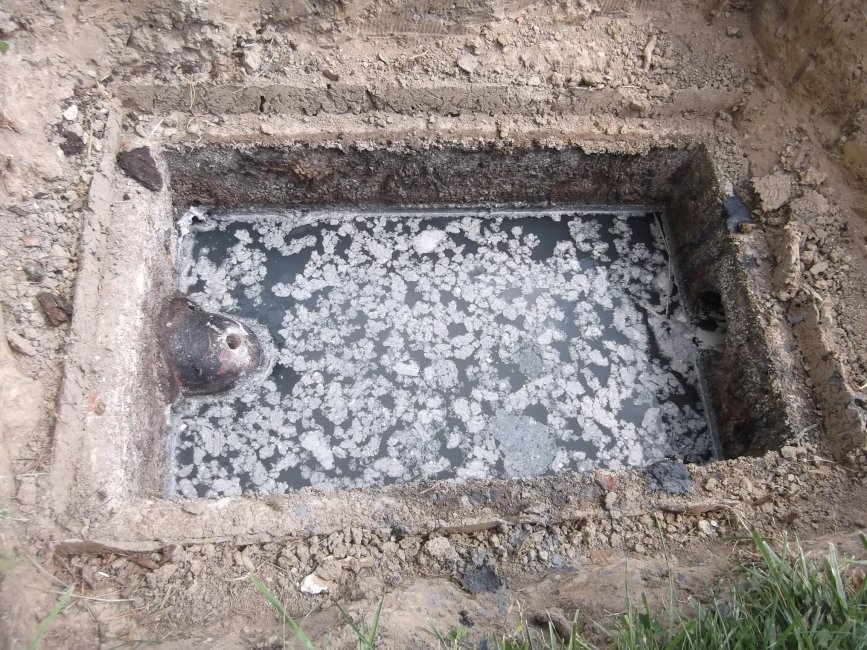-
Be sure to read this post! Beware of scammers. https://www.indianagunowners.com/threads/classifieds-new-online-payment-guidelines-rules-paypal-venmo-zelle-etc.511734/
You are using an out of date browser. It may not display this or other websites correctly.
You should upgrade or use an alternative browser.
You should upgrade or use an alternative browser.
Need help with my grease trap
- Thread starter Bucky623
- Start date
The #1 community for Gun Owners in Indiana
Member Benefits:
Fewer Ads! Discuss all aspects of firearm ownership Discuss anti-gun legislation Buy, sell, and trade in the classified section Chat with Local gun shops, ranges, trainers & other businesses Discover free outdoor shooting areas View up to date on firearm-related events Share photos & video with other members ...and so much more!
Member Benefits:
PeaShooter
Master
I would say inlet on right, outlet on left(elbow side)
17 squirrel
Shooter
- May 15, 2013
- 4,427
- 63
,
I would say inlet on right, outlet on left(elbow side)
^^^^ This. The pipe on the elbow should extend down about half the depth (I think) of the grease trap.
It's not as uncommon as you might think to have them installed backwards. I saw one at a fairly large food processing place that had a huge grease trap installed when they built the facility. After pumps and controls kept getting gunked up in the sewage lift station in the industrial park, they tracked it to the food processer, and it turned out the grease trap was put in backwards.
If yours is in backwards, just cut off the elbow on the inlet and then fit new pvc fittings on the outlet side to make a baffle. Easy peezy.
No need to wonder where it all is. It's everywhere except where it should be. Either in the city sewer system, or in your own leach-field.
It's in my leach field.

It's in my leach field.
No worries! Just move your house and leach field to opposite sides! Problem solved!
No worries! Just move your house and leach field to opposite sides! Problem solved!
I'll start first thing in the morning.
How much grease do you run down the drain? Since your on a septic system surly the grease trap is before the tank. Depending on the style of tank it should also have baffles, and may even have a wall across it; which should still catch a lot of the grease.
How much grease do you run down the drain? Since your on a septic system surly the grease trap is before the tank. Depending on the style of tank it should also have baffles, and may even have a wall across it; which should still catch a lot of the grease.
Like he said, your septic tank likely caught the grease that got past your trap. Many houses don't even have a grease trap. I've lived in several houses with septic systems and none of them had a separate grease trap.
How often should a septic tank be pumped? This one was installed in the mid 70’s and I don’t think it has ever been pumped.
You'll know it when/if it needs pumped.
And that all depends on A) soil type, B) natural groundwater levels, C) surface soil moisture contents / rainfall, D) usage, and E) all the above.
And it may never need pumped if it wasn't installed correctly or if something may have settled/broken.
How often should a septic tank be pumped? This one was installed in the mid 70’s and I don’t think it has ever been pumped.
Every 30-40 years whether it needs it or not. Lol
But seriously I think 3-5 years depending on usage and size.
I think 3-5 years depending on usage and size.
^^^ That's what I remember being told. You might not need it that often, but if your tank gets too full of solids and they spill out into your leach field, by the time you know you have a problem, it might be too late.
If I moved into a house with a septic system, I'd have it pumped and I'd install a riser and a manhole cover so I could "stick" it and keep track.
Staff online
-
d.kaufmanStill Here
Members online
- Amattern
- indyartisan
- Methane Herder
- Wolfhound
- Bosshoss
- CheeseRat
- medavis428@
- SouthernStar25
- derrickgoins
- Malware
- gdun67
- fishbass62
- Riflemen14
- shootersix
- sig1473
- Njorris
- trimman83
- red_zr24x4
- INgunowner
- gds
- mcoppers
- Nakatomi
- Splagt
- flyingsquirrel
- xzjohn
- woody131
- Knight Rider
- Goodcat
- jzwhts
- JimH
- sapper83
- drillsgt
- Hawkeye7br
- Chalky
- TheGrumpyGuy
- pjcalla
- DDadams
- Bartman
- jy951
- skydelta34
- KoopaKGB
- ChrisK
- Emerson Dambiggins
- JimmySlick
- dieselrealtor
- 42769vette
- Frank_N_Stein
- Chippp1961
- jamil
- d.kaufman
Total: 2,068 (members: 300, guests: 1,768)





